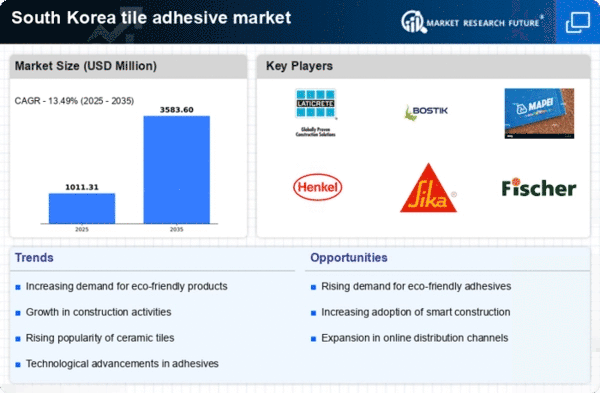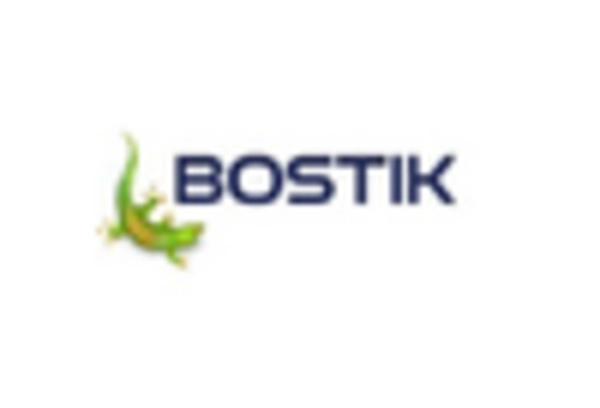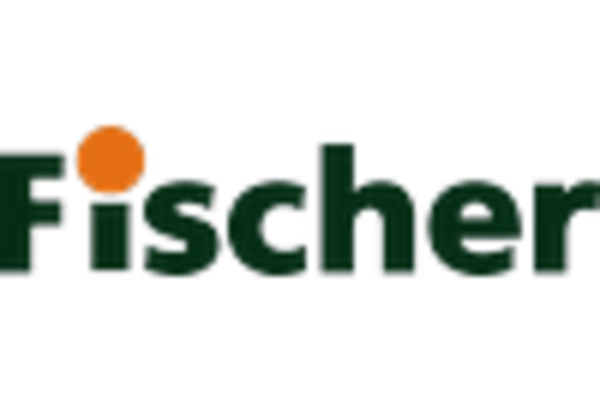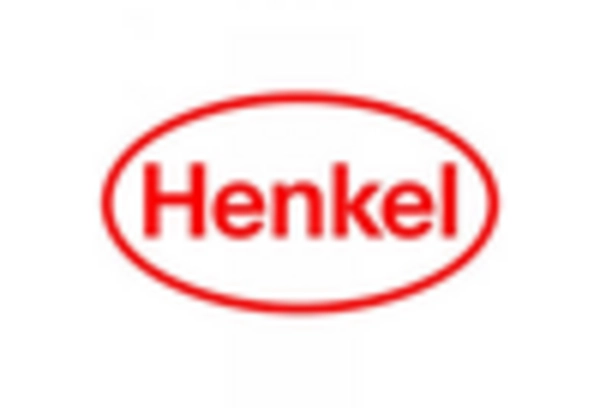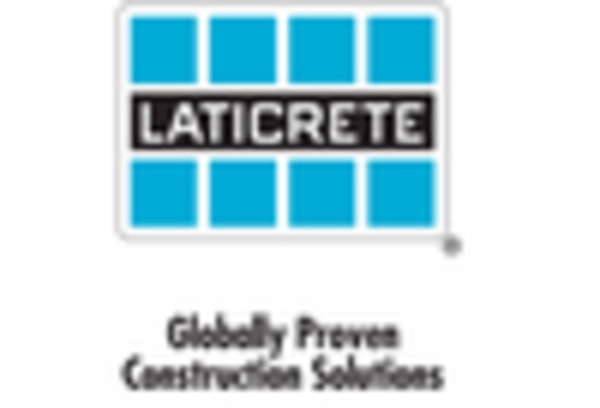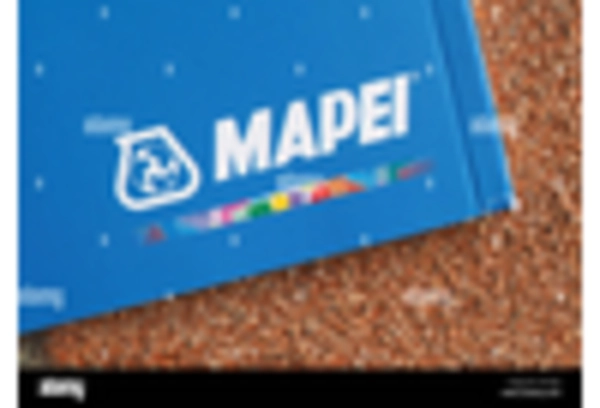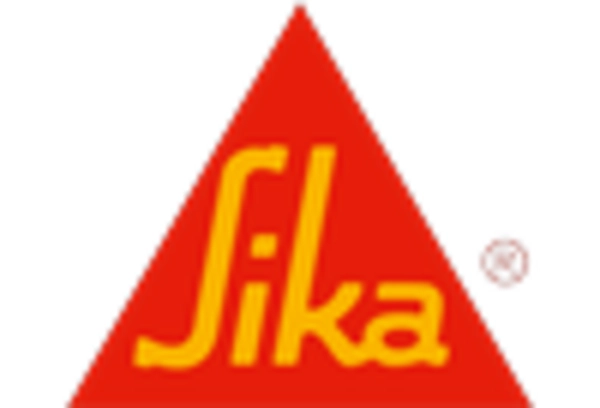The tile adhesive market exhibits a dynamic competitive landscape characterized by innovation and strategic partnerships. Key players such as Laticrete International Inc (US), Mapei S.p.A. (IT), and Henkel AG & Co. KGaA (DE) are actively shaping the market through various operational focuses. Laticrete International Inc (US) emphasizes product innovation and sustainability, aiming to enhance its market share by introducing eco-friendly adhesive solutions. Mapei S.p.A. (IT) is strategically positioned through its extensive distribution network and commitment to research and development, which allows for the continuous introduction of advanced products. Henkel AG & Co. KGaA (DE) focuses on digital transformation and customer engagement, leveraging technology to optimize its supply chain and improve customer service. Collectively, these strategies contribute to a competitive environment that prioritizes innovation and responsiveness to market demands.In terms of business tactics, companies are increasingly localizing manufacturing to reduce lead times and enhance supply chain efficiency. This approach not only mitigates risks associated with The tile adhesive market needs. The market structure appears moderately fragmented, with several key players holding substantial market shares while numerous smaller companies also compete. The collective influence of these major players fosters a competitive atmosphere where innovation and operational efficiency are paramount.
In October Laticrete International Inc (US) announced the launch of a new line of eco-friendly tile adhesives designed to meet the growing demand for sustainable construction materials. This strategic move is significant as it aligns with global trends towards sustainability, potentially enhancing the company's reputation and market position in an increasingly environmentally conscious market.
In September Mapei S.p.A. (IT) expanded its production facility in South Korea, aiming to increase its output capacity by 30%. This expansion is crucial as it not only strengthens Mapei's local presence but also enables the company to respond more effectively to regional demand fluctuations, thereby enhancing its competitive edge.
In August Henkel AG & Co. KGaA (DE) launched a digital platform aimed at improving customer interaction and streamlining order processes. This initiative is likely to enhance customer satisfaction and loyalty, positioning Henkel as a leader in digital transformation within the tile adhesive sector.
As of November current competitive trends are increasingly defined by digitalization, sustainability, and the integration of advanced technologies such as AI. Strategic alliances among key players are shaping the landscape, fostering innovation and collaborative solutions. The competitive differentiation appears to be shifting from traditional price-based competition towards a focus on technological advancements, product innovation, and supply chain reliability. This evolution suggests that companies that prioritize these aspects will likely secure a more robust market position in the future.


